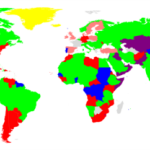04 June 2021
Question:
Jahanzib Khan writes:

What is the difference between will and would? How and when should we use these?
Answer:
Dear Jahanzib,
Thank you for your question. It centers on modal auxiliaries – words that come before, and change the meaning of, the main verb in English sentences. When you study will and would, be sure that you have a strong understanding of the main verb.
Grammar books often call will the base or present form and would the past form. However, modals do not always connect to exact ideas about present and past time.
Consider these two examples. The main verb is go.
I will go to the store tomorrow.
I would go to the store, but my car isn't working!
The first statement suggests a future action, while the second statement suggests a wish about a present situation.
For now, let us leave aside these issues and explore a few clear ways English speakers use will and would.
Will
Will can mark future time, as in the example you heard earlier:
I will go to the store tomorrow.
But it also has other uses, as in:
The reason my friend has done so well in business is that he will not invest in risky companies.
That statement suggests a general policy or rule that has been in place for a long time.
Will can also be used for commands, as in:
You will finish your homework!
Would
Would often suggests a wish or desire about a present situation. For example:
I wish it would stop snowing.
Would can also be used for polite requests, as in:
What would you like to eat?
Or:
Excuse me, would you be able to tell me where the train station is?
General ideas
Think of will and would as family members, perhaps sisters.
Will, the strong, firm sister, is often used for commands or actions.
Would, the quieter, softer one, is used more for expressing dreams, wishes, possibilities and polite requests.
This comparison is not perfect. But, it does provide a general idea about the difference between will and would.
When you read news stories or listen to English speakers, pay careful attention to how they use will and would. With time, you will develop a stronger understanding of these difficult words. And that would make us all cheer!
If you have a question for our staff of teachers, send it by email to learningenglish@voanews.com.
And that's Ask a Teacher!
I'm John Russell.
John Russell wrote this lesson for VOA Learning English. Caty Weaver was the editor.
_____
Words in This Story
polite – adj. having or showing good manners or respect for other people
personality – n. the set of emotional qualities, ways of behaving, etc., that makes a person different from other people












